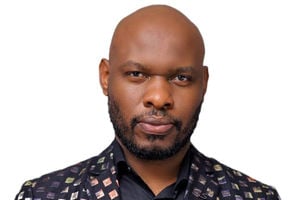Prime
We can only hope for a better 2022

Moses Khisa
What you need to know:
- ...I should reiterate my commitment to forcefully speak to the issues of the day that are critical and pertinent.
The Covid-19 pandemic has ruled the world the past two years. It has been ruthless and unrelenting. Many thought 2020 was a terrible year, 2021 turned out rather worse. People’s livelihoods have been ruined and lives destroyed.
In our Ugandan backyard, the Museveni government’s policy responses, especially in reaction to the delta variant of the pandemic in the second half of the year, have been ill-thought and in many respects disastrous.
Take the indefinite closure of schools when pretty much all the neighbouring peer states have maintained schools open to keep children in schools and guarantee them some level of learning within the difficult circumstances of the pandemic.
Closing schools in June and sending all children home was a big blunder – it only aided the spread of the virus from school settings to the wider communities. Worse, keeping schools indefinitely closed, following the June 2021 shutdown, became indefensible considering the deep and long-term cost not just to the affected students but also the wider society.
The world might not be out of the woods anytime soon, but there are some promising signs. For one, it now appears the latest variant, one many of us spend quite a bit of time learning how to correctly pronounce the name – omicron – has showed signs of being less deadly and devastating compared to the immediately preceding dominant variant – delta.
Scientist believe this might point to the possibility of the virus weakening and losing its biting force. There is no guarantee though. Whatever the trend the virus takes this year, the world has taken huge lessons, and 2022 can only be better with all that humanity has endured this preceding year.
Across the globe, communities of varying stripes have endured unprecedented disruptions and juggled extraordinary uncertainty. A key highlight of all that has transpired is the sheer resilience of especially individuals and groups living tenuously, who are at gross disadvantage with minuscule resources.
The many who have had to adjust to be able to soldier on, to find alternative ways of eking a living; they are caught in a punishing environment with little or no fall back unlike the few privileged, of which I count myself fortunate to be one.
As the world hopefully takes a decisive, or at a minimum gradual, turn on a better road ahead than we have so far trudged, governments like Uganda’s must appreciate that fighting a pandemic must balance the cause of public health with the wider material and social imperatives of people’s lives.
To destroy people’s livelihoods in the name of protecting their lives gets to a point where it is morally indefensible. Common sense policies must be embraced in place of rigid and often counterproductive practices.
There is a limit to how long and how much citizens can put up with senseless and illogical measures. Night-long curfew is one of them. Extreme requirements at Entebbe airport must be rethought and revised.
Consider this. I travelled to Addis Ababa the week of Christmas after taking a negative Covid test in Kampala. I wasn’t required to take one on arrival in Addis. On the return journey, I took another negative test before departing Addis only to be subjected to yet another test at Entebbe hardly 24 hours later.
From a clinical point of view, two tests in barely 24 hours make absolute no sense. The ever cynical, but equally perceptive, Ugandans now see all this as a money-making scheme – it has been generally dubbed ‘cofit’ to denote using Covid for profit. This cynicism doesn’t augur well for public health campaigns.
There is no doubt the virus has been a monumental public health and medical crisis. Scientists have worked hard to chase down an elusive and devious virus. They have succeeded in many ways but also fallen short in others. That is really what science means. It’s never magic.
Scientific processes are scarcely smooth operations; they can produce contradictory results, and scientists are never in total agreement on everything. But humanity is better off paying heed to science and giving the benefit of the doubt to specialists searching for answers and sharing their knowledge. The alternatives to science, and the works of professionals, aren’t particularly convincing or reliable.
A personal note. This column, presumptuously called Majority Report, belongs to the public, the readers. As we hope for a better year ahead, I thought I should reiterate my commitment to forcefully speak to the issues of the day that are critical and pertinent.
This is a pledge I have to recommit at the start of every year. To use this precious space to make the case for the public good. To add voice to the most important public issues. To speak truth to power.
Wishing you, all, a productive and rewarding year ahead!



